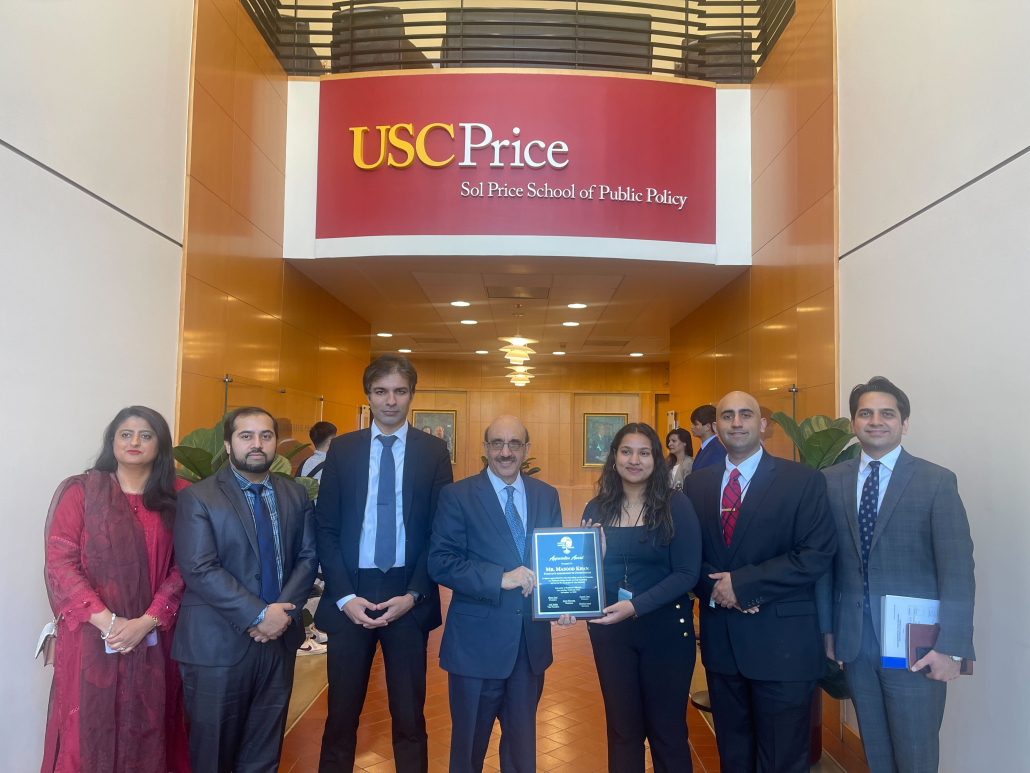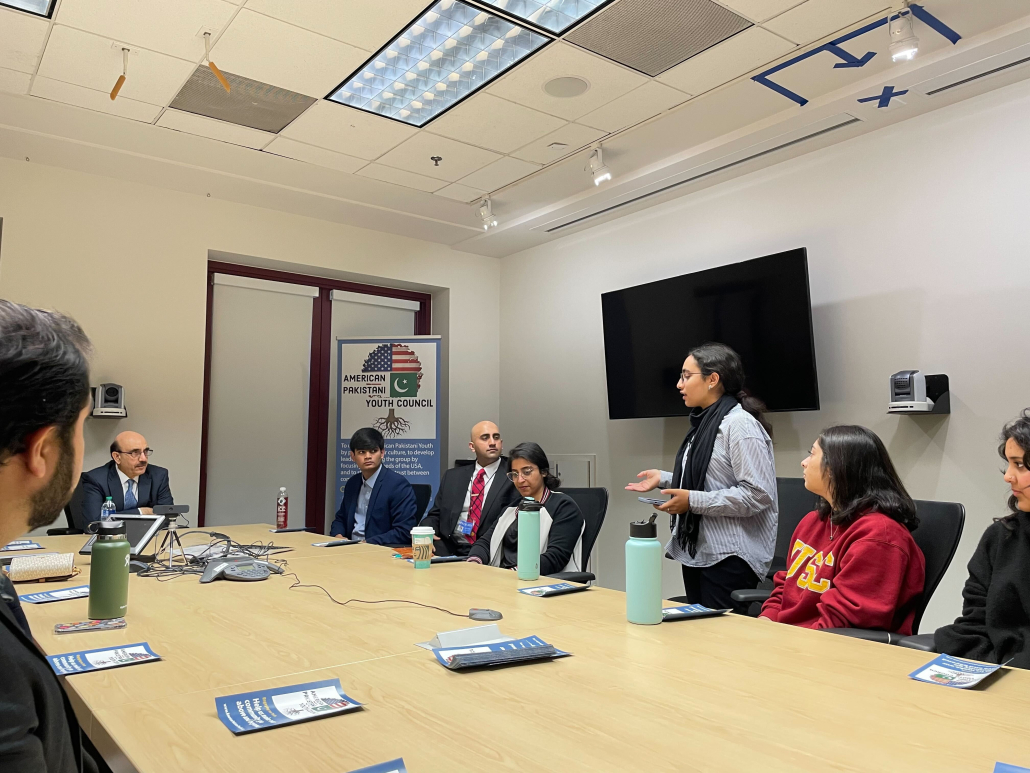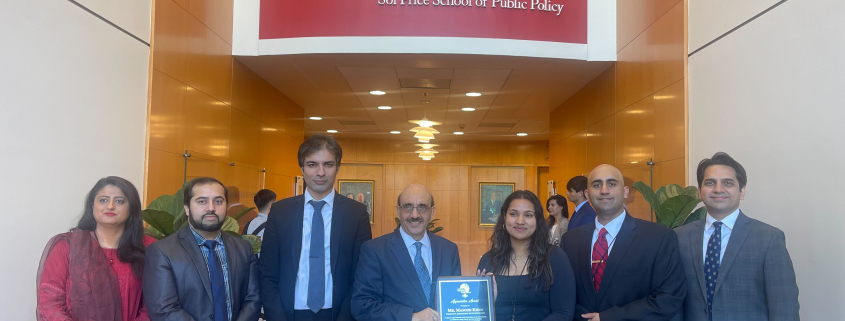Pakistan’s ambassador to the U.S. greets and talks with students

Ambassador Masood Khan joined a group of university and high school students at Ralph and Goldy Lewis Hall Monday to discuss the diplomatic relationship between Pakistan and the United States — with a spotlight on how students and youth can play a significant role in shaping its future.
Khan is a 71-year-old Pakistani diplomat who served as the 27th President of Azad Kashmir, a Pakistani-administered self-governing entity in the northwestern part of the Indian subcontinent. He was Pakistan’s ambassador to China and Pakistan’s permanent representative to the United Nations before he started serving as the ambassador to the United States in 2022.
Khan began the discussion with a brief summary of the history of Pakistan-U.S. relations. In 1947, during the Cold War, Pakistan established diplomatic relations with the U.S. under the Truman presidency. Ever since then, the U.S. has played an important role in helping Pakistan develop its economy and military forces in its early stages.
An alliance to fight the spread of communism was made between the two countries in the 1950s. After many wars in the Middle East, resulting in the collapse of the Soviet Union in 1991, Pakistan has led an effort to help the countries in these regions return to a norm defined by the United Nations.
“I think that Pakistan [has played] a role in moving the entire international community towards democracy, towards a respect for human rights and towards respectful global norms,” Khan said.

The USC Pakistani Student Association, the American Pakistani Youth Council and the USC Price Graduate Policy and Administration Community partnered to sponsor the discussion with Khan.
Participants not only had the opportunity to hear from the ambassador himself, but also had time to ask their own questions, ranging from how to become a good diplomat to what role youth should play in Pakistan-U.S. relations.
Zahra Chaudhary, a junior majoring in legal studies, had the chance to ask Khan a question about the change in the role of youth and later said she was glad to talk with an ambassador in person.
“I like that he opened the floor to questions so that actual students could give their insight and feedback and ask him for advice because he’s been doing this for a long time,” Chaudhary said.
Khan responded that with the influence of social media, many young people, both in the U.S. and Pakistan, are raising awareness and acting as global citizens in local and global policy.
“You are different in the sense that you have responsibility not just for your own neighbor, your own nation or province,” Khan said. “For instance, climate change, weapons of mass destruction, peace and security all around the world … are not local issues.”
Abeerah Siddiqui, a junior majoring in environmental science and health and the president of PSA, said the discussion was an opportunity for students to hear from the ambassador’s perspective on his work amid rising tensions in Pakistan-U.S. relations over issues such as terrorism and nuclear weapons.
“There was a lot of tension over the fact that there [were] terrorist groups present in Pakistan, and the U.S. thought that Pakistan was defending or helping them,” Siddiqui said. “So I think there’s a lack of proper communication between the two countries.”
Khan followed to address the issue of terrorism in his country, praising the collaborative international partnerships to restore peace in the region. He stated that the longevity of Pakistan-U.S. relations contributed to restricting the influence of terrorist organizations, including Al Qaeda.
“We have been steadfast partners this year. We have celebrated 75 years of our diplomatic ties, the journey that started with the exchange of messages between the White House and Muhammad Ali Jinnah,” Khan said.
The session continued with a discussion on the economic interactions between the U.S. and Pakistan, with a highlight on the cooperation in the energy and agriculture sectors. Khan pointed out that new strides in agricultural research have been taking place in Pakistan due to the partnership between the two countries.
“[Continuing to do] research in genomes, developing these weather resistant hybrid seeds … This is cutting edge, this is futuristic,” Khan said. “This has been in Pakistan because of the collaboration between Pakistan and the United States.”
Despite many achievements, Pakistan also struggles with poverty — Khan said about 30% of the population is below the poverty line. He encouraged youth to make efforts to address this issue.
“Elimination of poverty produces good business [investment] … You eliminate by empowering, and this is what is happening in Pakistan and there you can make a contribution,” Khan said.
The 40-minute discussion ended with Khan encouraging younger generations to execute their plans of becoming community leaders and contributing to international development now. He also warned the students of the danger of procrastination, saying the future is always evasive.
“Be ambitious. Make yourself the best leader in the world, the best super connector between nations,” Khan said.

